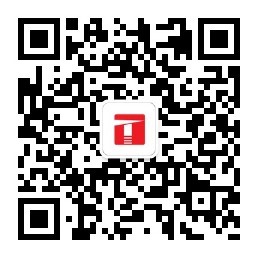TCU (Telematics Control Unit) Remote Information Control Unit Application Value and Trend
TCU (Telematics Control Unit) Remote Information Control Unit Application Value and Trend
As the core component of network interconnection and vehicle intelligent control in the future, the vehicle network terminal is the underlying hardware entrance of the vehicle network and the key carrier for completing data acquisition and network transmission. At present, China's car networking business is entering the market introduction period, all parties in the market are in accordance with their respective plans to promote the practical application of car networking, and the terminal technologies and standards adopted are different. At present, the vehicle networking terminal market mainly consists of a pre-installed TCU system and an OBD/CAN bus network (through interaction with mobile phones), which are dominated by automobile manufacturers, Tier1 and Internet TSP companies.
The original model dominated by the OBD/car/car recorder system is still in the initial stage of the car network. The technical threshold is low, the Internet giants are constantly pouring in, the products are intensively launched, the competition is getting hot, and the OBD interface is used as the charging line. It’s getting hotter. Although the car network can be quickly cut through the post-installation, the OBD/car machine always faces problems such as incomplete data acquisition, difficulty in achieving differentiation, and low user acceptance, and the market penetration rate is slowing down.
In contrast, the TCU front-mounted system, as part of the automotive design, incorporates multiple technologies such as communications, automotive sensing, and control units, and is more closely connected to the car itself, helping to achieve richer vehicle networking applications and functions. At the same time, its open embedded system also contributes to the unification of the vehicle networking terminal standard. It will be the core hardware of the future car networking. The market space is broad, and it may be wrong to say it. If you understand it, we can also communicate privately.
The TCU front-loading technology has a very high threshold, which must meet the requirements of the automotive industry process technology. At the same time, it must constantly adapt to the iterative development of the vehicle networking technology. At present, the core technology is only in the world's few automotive electronics giants and technology companies. Through the accumulation in the past 8 years, it is one of the few core hardware manufacturers in China that can master this technology. The compatibility of 14 brands of 1082 models confirms the technical strength, and thus forms a national technological leading edge in the domestic market competition. In the lead position. However, with the further development of the Internet of Vehicles market, more and more enterprises will definitely participate in the pre-installation market, and the market competition will become fierce in the future.
At the same time, the gap in the technical standards of the Internet of Vehicles will also have a profound impact on the future development of the industry, bringing uncertain factors to the key component designers and suppliers of the industry and causing some impact on the company's business. Taking Thread as an example, with strong technical support, multiple extensions and compatibility of hardware platforms, open API interface protocols and four killers of free platform deployment, the terminal is quickly customized and developed.
On-site technical support is a strong guarantee. We have clear advantages in technical support for our customers around the world. Car networking products are new forms of products and services, and localization needs are essential. In the competition with domestic enterprises, we can provide on-site support for the first time to meet the customized needs of our customers. To this end, we set up technical support centers in Shenzhen (domestic) and Hong Kong (international) to provide on-site customer support at any time.
We use PPT to demonstrate the big content and application behind this. If you are interested, you can contact me to request the source file. I am happy to share it with you.
